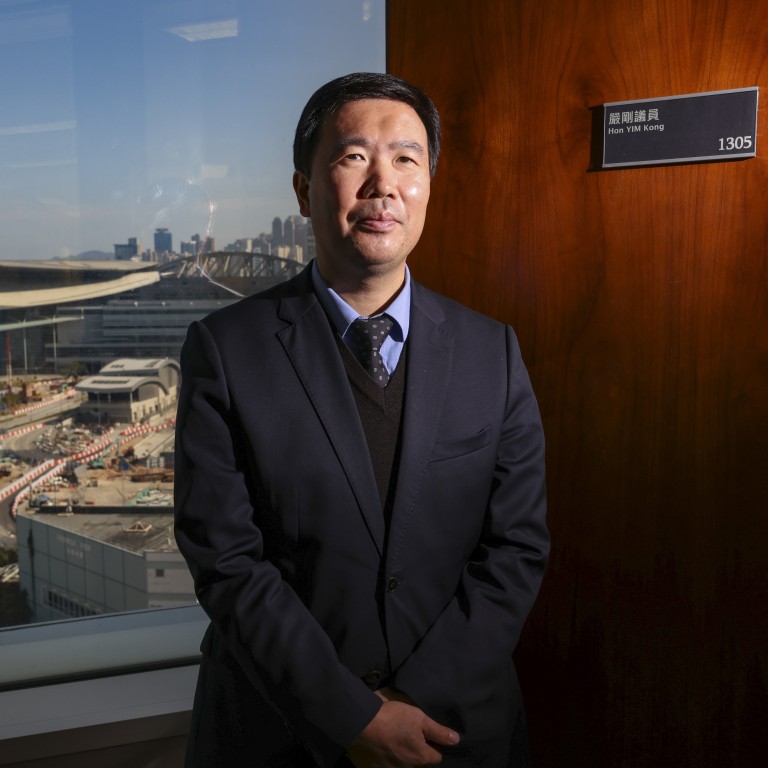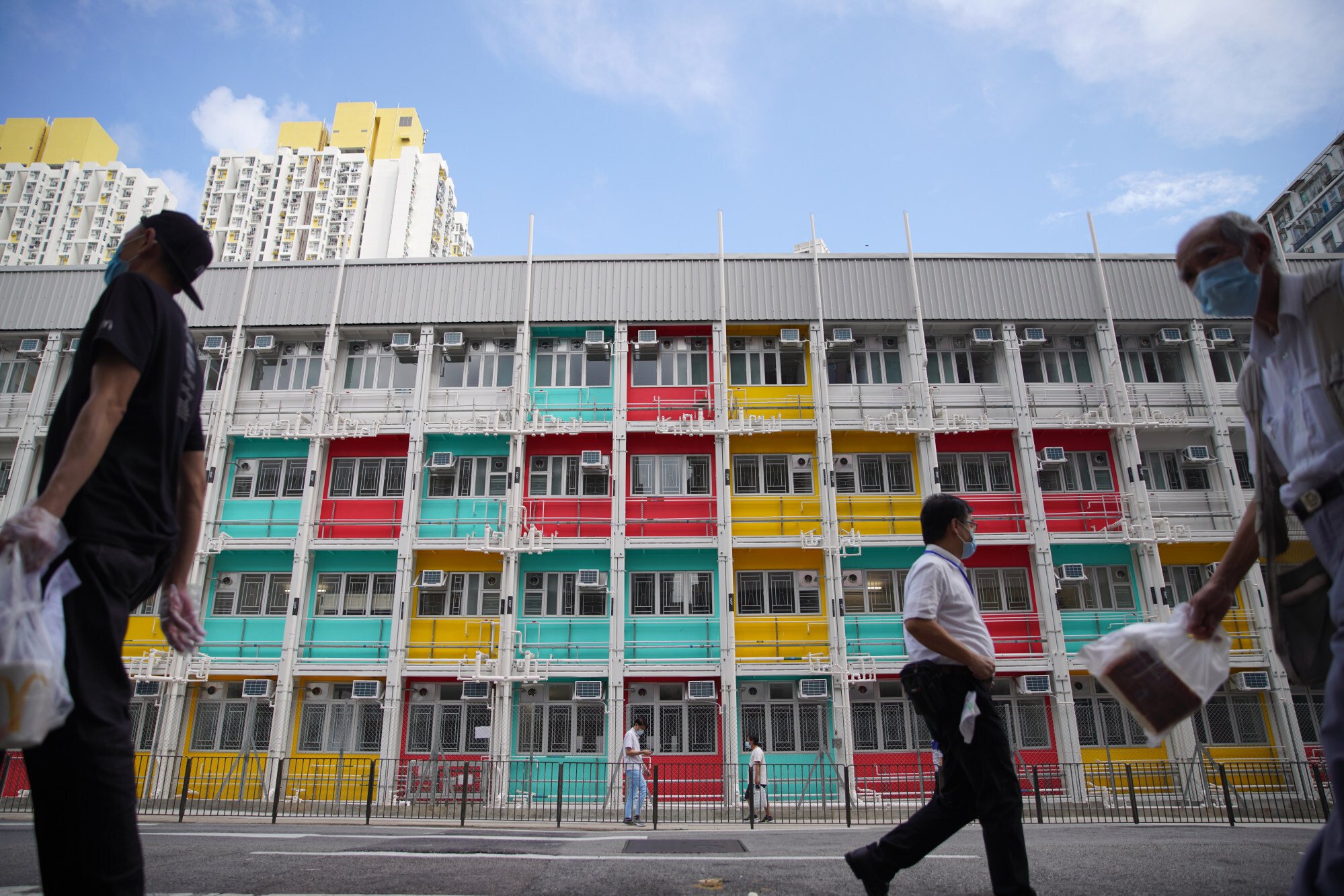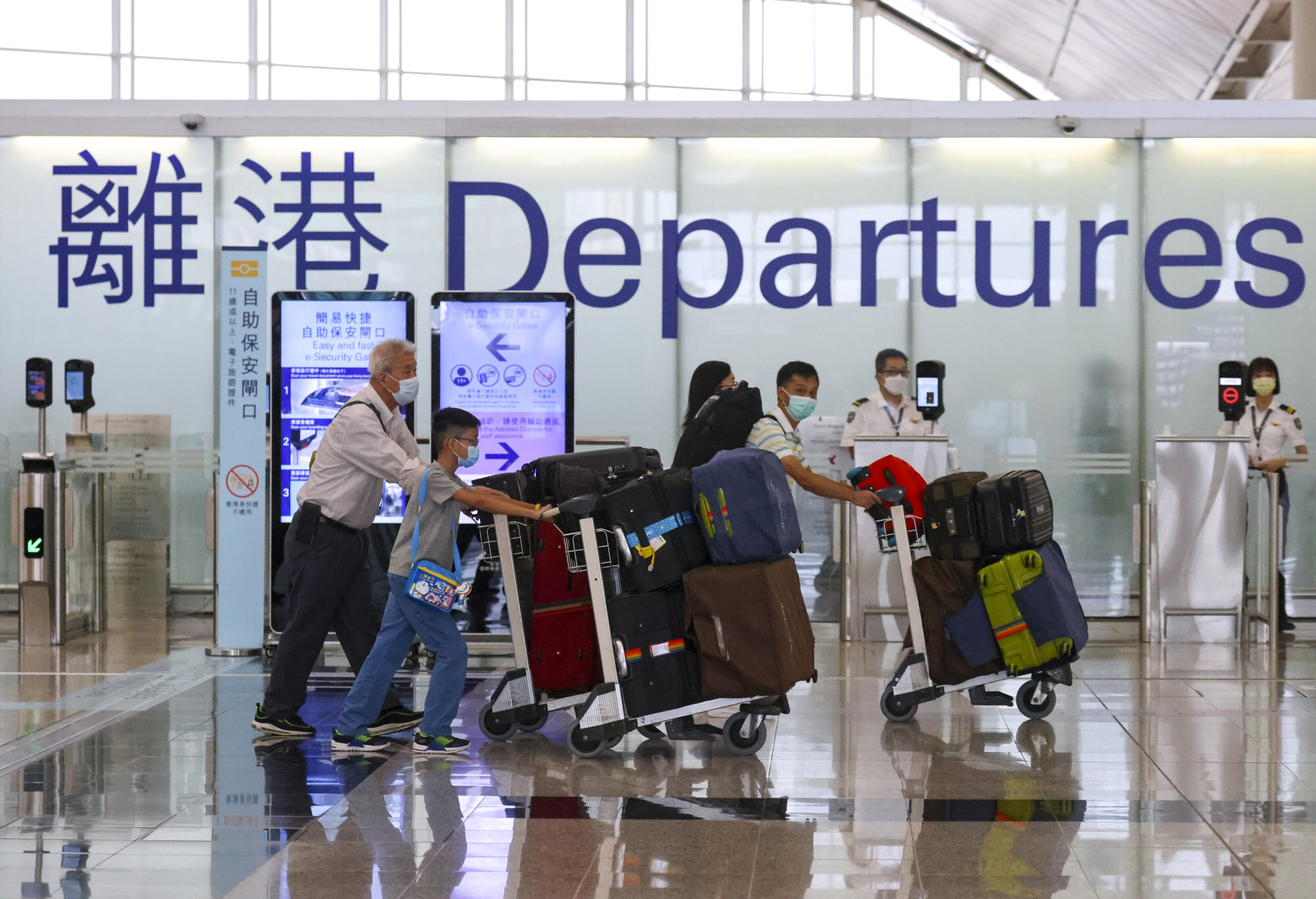
Hong Kong’s novice lawmakers: representative of mainland Chinese enterprises says sector is ready to help government solve city’s problems
- Erik Yim Kong, general manager of China Merchants Port, says state enterprises plan to take on a more active role in tackling the city’s housing and livelihood issues
- Yim was elected in a new commercial functional constituency for representatives of mainland Chinese companies created under Beijing’s ‘patriots-only’ electoral overhaul
Mainland Chinese companies in Hong Kong are ready to help the government tackle the city’s housing crisis by developing plots they own into transitional homes for people in line for public flats, says the head of a state-owned enterprise who just joined the city’s legislature.
Erik Yim Kong, general manager of China Merchants Port, said that state enterprises in Hong Kong also planned to take on a more active role in solving the city’s livelihood problems and expanding their public outreach in the coming years.
Hong Kong lawmaker mounts a comeback after his ousting as Law Society head
“Residents in the past did not know much about the 2,000-some mainland enterprises in Hong Kong, which in fact are a core driving force behind the city’s economy, as well as a critical supporter of the administration’s governance,” Yim told the Post in an interview.
“We hope the general public will have a greater understanding of our work.”
In the absence of the mainstream opposition, which sat out the revamped election over concerns it was designed to stifle dissent, Yim became part of an emerging bloc of lawmakers with links to the mainland. They include both representatives of state-run companies and gangpiao, or Hong Kong drifters, a term used to describe mainland Chinese who moved to the city for work.
Last September, the director of Beijing’s liaison office in the city, Luo Huining, called on mainland enterprises to fulfil their corporate social responsibility in Hong Kong.
Those companies, Yim said, were rich in resources, including manpower and land, and were eager to help the government resolve the city’s livelihood issues.

One of the proposals he hoped to push for this term was the creation of transitional housing on sites owned by mainland enterprises for employees – or even members of the public – currently on the waiting list for public flats.
Beijing has called the city’s lack of affordable housing a deep-seated problem that local officials must address, and set a target for the city to “bid farewell” to subdivided flats and so-called cage homes by 2049.
Transitional housing is aimed at giving low-income groups living in poor conditions, such as subdivided flats, better homes while they wait for public flats. The average waiting time for public housing in Hong Kong has hit a record 5.9 years.
“If our own employees who are waiting for public flats do not have to take up the transitional housing provided by the government, the units could then be released for other residents,” Yim said. “We also hope such a policy would make people feel proud to work for mainland enterprises.”
Legislative Council novice wants to close gap between the ‘2 Hong Kongs’
About 100 of the 2,000 mainland enterprises in Hong Kong held suitable properties, Yim estimated, citing a piece of land at Tsing Yi pier owned by China Merchants Port that could be one of the plots for the project. The company was ready to kick off the project once the government approved the change in land use, he said.
Mainland enterprises, which were a target for vandalism during the 2019 protests, also planned to step up their engagement with Hongkongers by donating to elderly services in the community and subsidising young entrepreneurs, he added.
Meanwhile, Yim defended the city government’s “zero-Covid” strategy, which has sparked frustration among foreign businesses due to its harsh travel restrictions, quarantine rules and other measures, which some have argued could undermine the city’s future as a global financial hub.
Hong Kong surgeon-turned-lawmaker hopes to improve primary health care services
Hong Kong’s approach of stamping out Covid-19 locally – a strategy that most countries have abandoned – is meant to foster the reopening of the border with the mainland.
“If the mainland can set a target of zero-Covid, why can’t Hong Kong?” Yim asked. “Only reopening the border with the mainland can bring hope to the city’s economy. Foreign chambers of commerce also see Hong Kong as their window to enter China.”

More than 76,000 Hongkongers have successfully applied for the visa scheme offered by Britain since its introduction last year.
Yim said the national security law did not hamper Hong Kong’s competitiveness, and insisted that new talent would come to the city when the pandemic was over.
“Will people who moved to Britain enjoy a standard of living and job opportunities better than Hong Kong?” he said. “I am sure many of them would voluntarily return sooner or later. I would not be too worried.”







